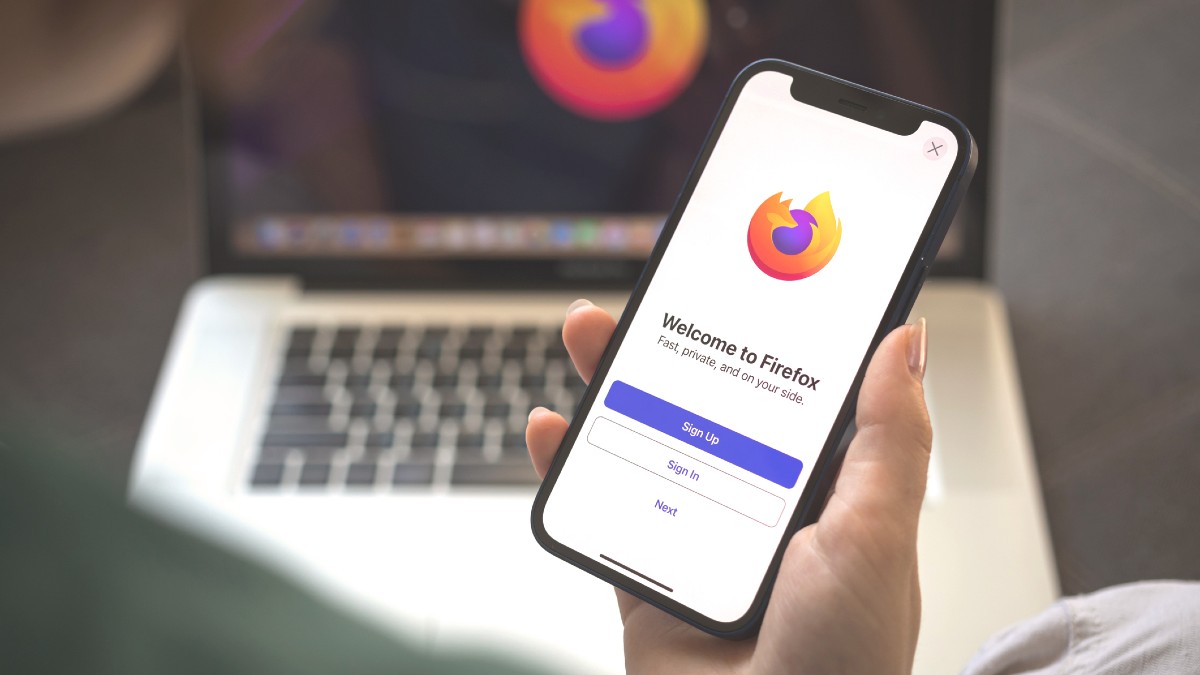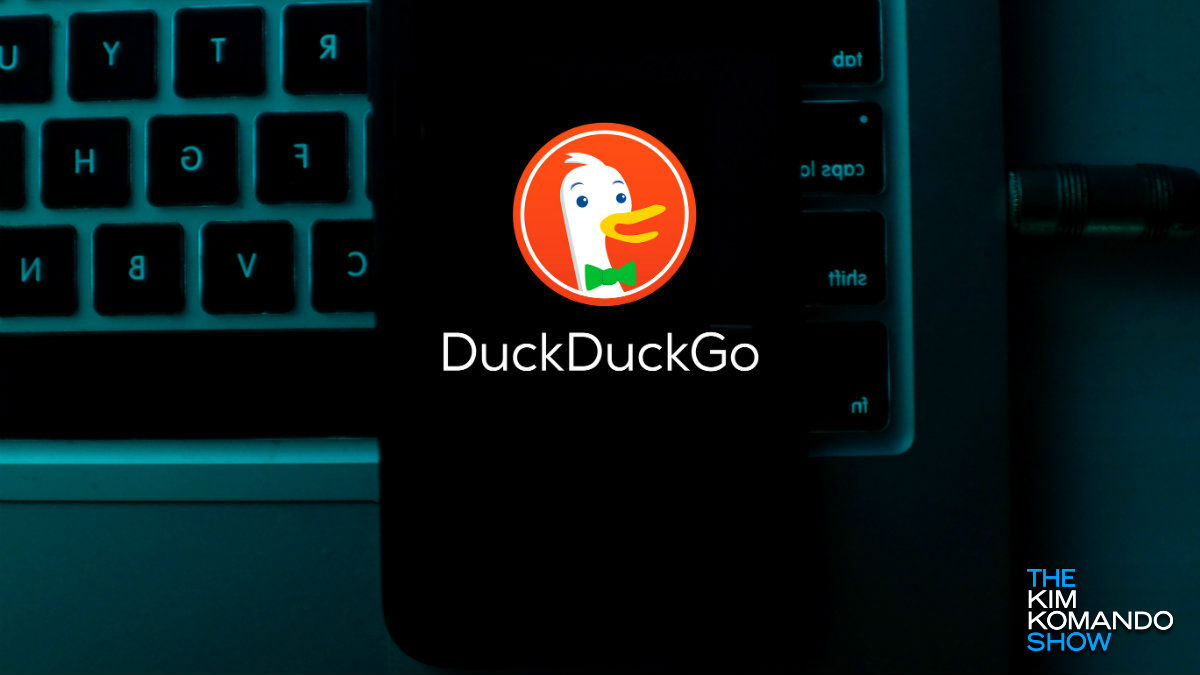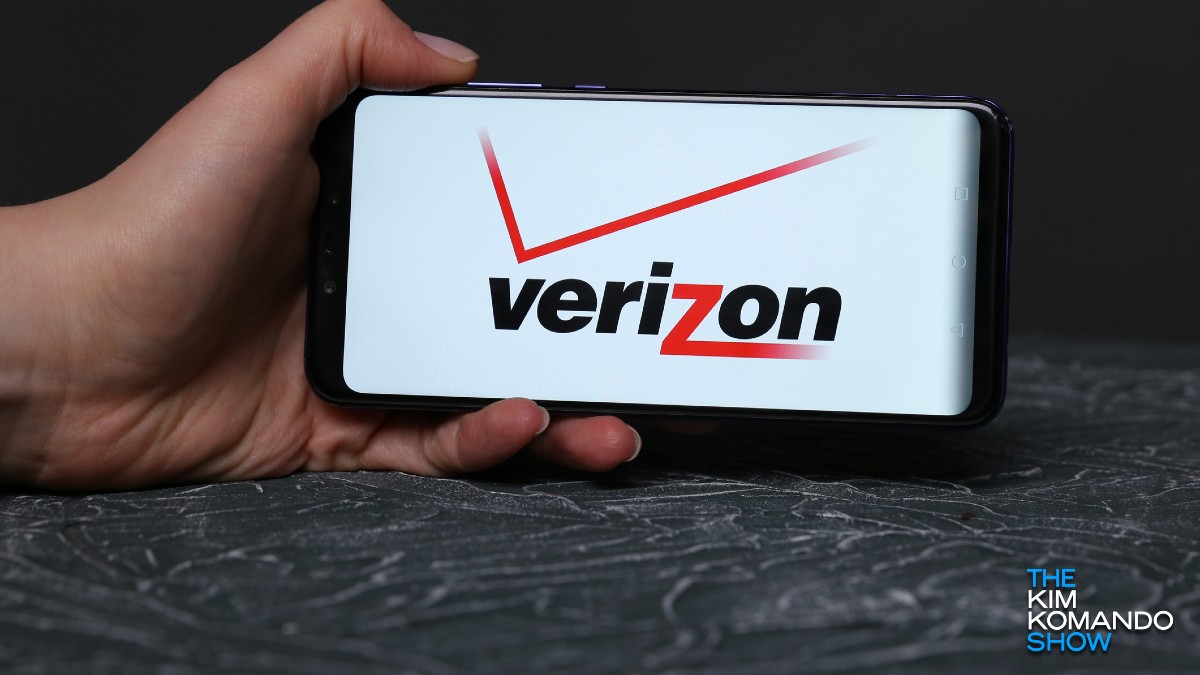Google alternatives that don’t sell all your data

Google is one of the best examples of “If it’s free, you’re the product.” And its employees, business decisions, stock price, biases and preferences have a big impact on what its “products” (Smile! That’s you and me!) see when we use Google Search.
When I look at Google’s ad-choked search results, antitrust woes and stalker-like approach to tracking us, I can’t really trust the results I get are fair, balanced or even just thorough. Add in search bias on political topics and large brands getting all the shine in the search algorithm, and we’ve got a problem.
I hear from a reader, viewer or listener just about every day who’s looking for ways not to use Google Search.
Google isn’t the only search game in town
Dennis in Reno, Nevada, sent me a note the other day, asking if Google had purchased the search engine DuckDuckGo. Nope, they haven’t. That’s fake news spreading online.
He also asked me for “the best product to avoid Google tracking and search manipulation (i.e., logarithm).” It’s algorithm, friend. I don’t want you to embarrass yourself in polite tech circles. The “best” product really depends on what you like. I’ve got options for ya. But first …
Follow the money
Wondering how Google’s competitors make money if they’re not shilling your info to anyone with a buck to spend? Most alternative search engines make money in three ways:
- They show ads based on your search keyword, not your browsing habits or behavior.
- They get an extra sliver of the action when you click an ad and make a purchase.
- They sell premium subscriptions for ad-free searches and their other products.
Try a privacy-first search engine
You won’t see AI tools like ChatGPT in this list since I’m sticking with traditional search engines. There are endless options, but here’s a good place to start:
- DuckDuckGo: Its entire gimmick is its lack of user tracking, as well as a company policy of no targeted ads or relevant results based on your search history. I don’t use DuckDuckGo, though; I seem to get better search results from the next option.
- StartPage: The Netherlands-based company calls itself “the world’s most private search engine.” StartPage pays Google for the use of its search algorithm but strips out the tracking and advertising that comes with it. As a result, you get a Google-like experience, along with the promise your data will never be stored, tracked or sold.
- Ecosia: It’s a traditional search engine, ads and all, but its profits go to planting trees worldwide — over 217 million to date and counting. Ecosia doesn’t sell your data, and its searches are encrypted. They collect “a small amount of data” by default; you can opt out.
- Dogpile: Google, Yahoo, Bing and all the rest have their own ways of sorting through search results. Dogpile combs through them all to help you find what you’re looking for.
All the companies collecting your info to train AI

Aliens might be on their way, but the robots are very much here. The apps you rely on every day use your data in many ways. The latest craze? Your data’s making a whole lot of robots a whole lot smarter.
Earlier this month, Zoom users discovered the app was using data from video calls to train its artificial intelligence (AI). It didn’t go over well, and they quickly backtracked (sort of). Now, we’re all wondering what these companies are really up to.
How to change the default browser and search engine on Windows

Many factors, including speed, appearance, ease of use, privacy and customization options can determine your choice of search engine. Some people stick to the default search engine included with their browsers. But it would be best if you took the time to choose a search engine that works best for you.
Search engine comparison: Google vs. Startpage vs. DuckDuckGo vs. Bing

Spiders, also known as web crawlers, search the internet to find results that match your query. If you’ve ever researched the same topic on different search engines, you’ll notice the results can be drastically different.
5 best browsers not named Chrome to use with your Android phone

It’s hard to imagine a world without Google. But every time you use Google or Chrome, your information and habits are stored and used to serve targeted ads. Tap or click here for a big reason to stop using Google Chrome on your smartphone.
It's easier than you think to change default apps on your Android

If you’ve ever purchased a phone, you know how easy it is to get caught up in customizing your settings. Whether it is your background image or default browser, there are many ways to personalize your device.
Android is one type of phone with a wide variety of customization settings. While default settings may be convenient for a while, you don’t have to confine yourself to them. Tap or click here to quickly access the secret menu on your Android phone.
DuckDuckGo just launched search assisted by AI - Here's how to use it

DuckDuckGo has an all-new, AI-driven search feature. It can be used for fast results without the hassle of clicking on every page on your SERP. Get the answers you need instantly while enjoying the private service the search engine is famous for.
Bad news if you use DuckDuckGo - It's not quite as private as we thought
There are plenty of browsers and search engines out there that aren’t from Google. Tap or click here for our search engine comparison. Most people know that browsers and search engines can track your online activity.
Your phone is spying: Do this now to wipe your interests

You probably know that Big Tech companies like Google, Apple and Amazon are chasing your every click. It’s an excellent way for them to pinpoint your preferences so they can chuck personalized ads your way. But you may not know just how these companies are tracking you.
Fed up? Alternatives to Google for search, email, messaging and more

Think for a minute about what Google doesn’t know about you. Its search engine dominates the competition, and it runs apps and services that know what you’re watching, where you’re going and what you’re interested in online.
DuckDuckGo changes its RULES about what you see in search results

Your browser choice can be based on anything from customization options to cosmetic features. The most crucial factor to pay attention to is privacy, however. Some browsers track your web activity and sell it to third parties, while others don’t store any data of you or your searches.
If they don't sell your data, how does DuckDuckGo make money?

More people are becoming aware of how much their privacy is exploited by social media, apps, smart devices and browsers. That last one is particularly problematic since it’s your gateway to the internet. Every website you visit, forms you fill out and search history can be tracked by your browser and shared with third parties.
Want to get away from Big Tech? Here’s how

My inbox is full of one question this week: How can I drop Big Tech companies? This got me thinking … Is it possible to stop using the services of the Big Five altogether? That’s Amazon, Apple, Google, Facebook and Microsoft. I did the research to give you a headstart if you’re looking to move away from one or all of them. If this helps you out, do me a favor and share it with your friends and family.
Microsoft Edge just got better - Try this new feature

Google Chrome is the most popular web browser out there. Most people use Chrome because it’s convenient and easy to navigate — but it’s hardly the most secure option.
Chrome has been known to collect tons of data on you — even when it’s not supposed to. For more privacy, others choose Mozilla Firefox or options like DuckDuckGo.
Security alert: 100 million search engine records revealed online

Admit it: All of us have items in our search history that we aren’t proud of. Whether you’re looking up obvious information that everyone should know or gross medical symptoms, there’s a reason we try to keep our search history private from others. It’s our personal business, after all.
Privacy tip: This search engine doesn't track you like Google

Can you name the most popular search engines off of the top of your head? You probably can — or at least the top one: Google.
Google may be a household name and the most-used search engine, but there have been some privacy issues related to it over the years. One of the main issues is that it tracks and retains some or all of your search history, even when you aren’t logged in. What you search for, the videos you watch, the images that you view, and the ads you purposely (or accidentally) click on are all retained by Google. Tap or click here to erase everything Google knows about you.
Don't be tracked, use these Google alternatives

Think for a minute about what Google doesn’t know about you. Its search engine dominates the competition, with more than 91% of market share across the world.
It doesn’t stop there. The web giant owns — among other things — Gmail, YouTube, DoubleClick, Nest and Waze. These apps know what you’re watching, where you’re going and what you’re interested in online.
DuckDuckGo compiled all the sites stalking you online

There are two types of people in the world today — those who like targeted ads and those who hate them and think they’re creepy. Why would anyone like targeted ads, you might be wondering? Well, you’re going to see ads anyway, so why not have them feature products you’re interested in? We get it.
This new search engine's focus is privacy, but will it really protect you?

Verizon is one of the biggest companies in the United States, and oversees numerous other businesses we’re all familiar with. It’s Yahoo’s parent company and owns AOL, Engadget, TechCrunch and more.
As you can see, the company isn’t averse to trying out new things. It even managed to cut a deal with Disney that gives Verizon subscribers a year of Disney+ at no additional cost. Tap or click to learn how to get Disney+ for free if you’re on Verizon Wireless.
